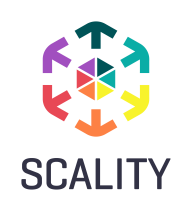


Scality RING and Quest QoreStor compete in storage solutions. Quest QoreStor is often perceived as superior due to cost-effectiveness and ease of deployment.
Features: Scality RING is recognized for performance and a good interface, offering features like erasure coding technology, UTIPI for billing, and limitless storage scalability. Quest QoreStor is known for advanced deduplication and compression, low maintenance with self-maintenance scripts, and flexible software capabilities that are hardware-independent, providing cloud tiering expansion and efficient data replication.
Room for Improvement: Scality RING could enhance ease of deployment, reduce initial setup complexities, and enrich replication efficiency. Quest QoreStor may improve backup integrations, refine cloud-tier capabilities, and streamline archiving functionalities for better user experience and wider compatibility with various hardware and software environments.
Ease of Deployment and Customer Service: Quest QoreStor has a straightforward deployment model and strong customer support, allowing integration into existing infrastructures with minimal training. Scality RING, while comprehensive and supported by reliable service, involves more complex setup procedures, potentially requiring extensive user training and resources.
Pricing and ROI: Scality RING generally involves higher initial costs, justified by its extensive feature offerings offering substantial long-term ROI, ideal for large-scale investments. Quest QoreStor offers lower upfront costs with faster ROI, advantageous for businesses prioritizing immediate returns and cost-efficient storage solutions through comprehensive features available at a single pricing model.



FlashBlade is the industry’s most advanced scale-out storage for unstructured data, powered by a modern, massively parallel architecture to consolidate complex data silos (like backup appliances and data lakes) and accelerate tomorrow’s discoveries and insights.
Quest QoreStor is commonly used for deduplication, compression, backup, and restore, integrated with NetVault for robust data redundancy and cloud storage replication.
Quest QoreStor optimizes data management with its sophisticated deduplication and compression capabilities, allowing companies to efficiently handle data redundancy. By integrating seamlessly with platforms like NetVault, Veeam, and resellers utilizing SPHiNX and BackBox, Quest QoreStor serves as both local and offsite repositories. This solution manages replication between production and corporate locations, strengthening recovery and improving backup operations. QoreStor's software-based nature ensures flexibility and easy integration, although improvements in replication and installation are sought by users.
What Are Key Features of Quest QoreStor?In sectors such as finance, healthcare, and technology, Quest QoreStor aids in maintaining vital data management with its robust features, enhancing data recovery strategies. Its use with secondary backup targets and replication capabilities supports a wide range of industry requirements. However, challenges such as initial setup complexity and system interface improvements are areas for growth, particularly in expanding capacities and addressing specific cybersecurity concerns like ransomware protection on Linux.
Scality RING is the scalable and resilient object storage solution designed for modern workloads, providing seamless data protection against evolving cyber threats.
Scality RING leverages S3 object storage to meet unpredictable demands with a patented MultiScale Architecture that offers limitless scalability across capacity, performance, and more. It delivers end-to-end cyber resilience with CORE5 for ransomware protection, while its cloud-style economics and intuitive management empower enterprises to accelerate AI initiatives and optimize cloud deployments. Its flexibility is ideal for service providers managing extensive data needs.
What are the key features of Scality RING?Scality RING is extensively implemented in backup solutions across industries, supporting platforms like Veeam and CommVault. It aids in storage expansion and management of large data volumes alongside multi-site architectures. While not leading in AI spaces due to performance constraints, there's potential with faster disk support. It's also used in archives, binary lakes, multimedia services, and AI data lakes.
We monitor all Software Defined Storage (SDS) reviews to prevent fraudulent reviews and keep review quality high. We do not post reviews by company employees or direct competitors. We validate each review for authenticity via cross-reference with LinkedIn, and personal follow-up with the reviewer when necessary.